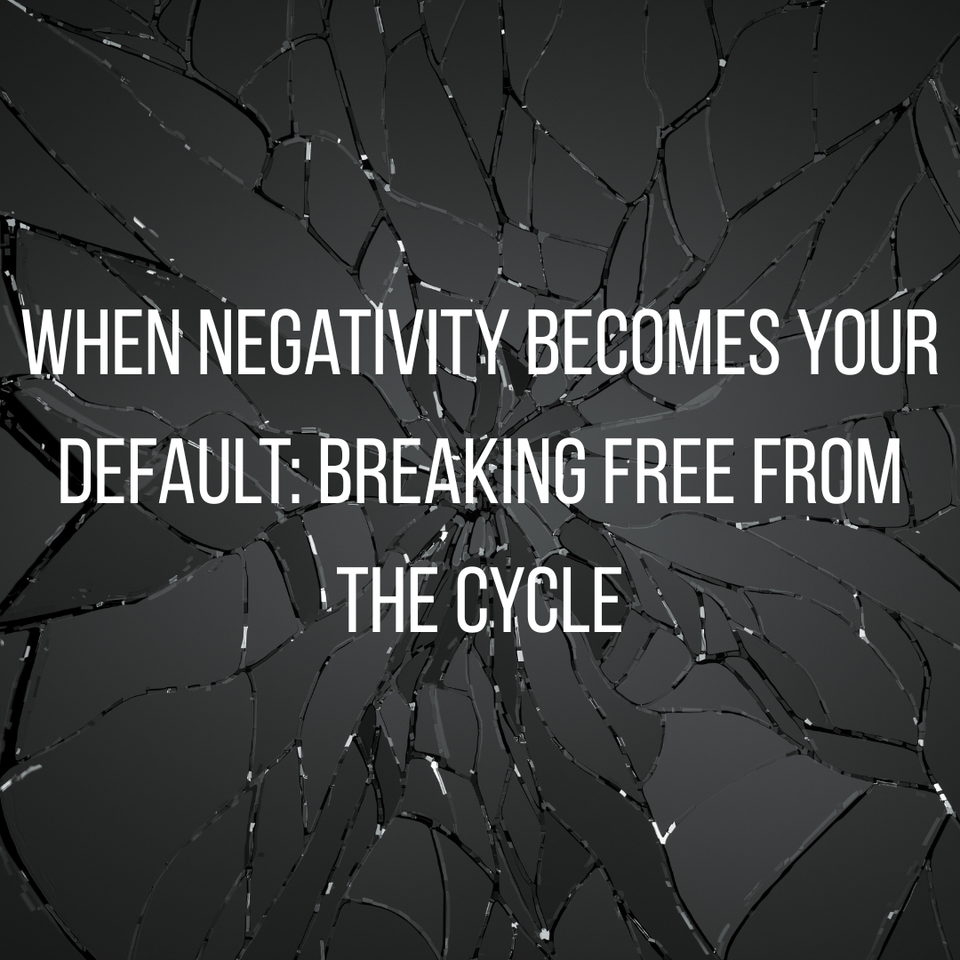When Negativity Becomes Your Default: Breaking Free from the Cycle

Have you ever noticed that no matter what happens, you always expect the worst? Maybe you can find the flaw in every plan, the risk in every opportunity, or the cloud behind every silver lining. Over time, negativity can become so deeply woven into our thinking patterns that we hardly recognize it anymore — it feels like part of who we are.But living with a consistently negative mindset is more than just a personality quirk. It can drain your energy, strain relationships, and keep you from experiencing the joy and hope that life has to offer. If you’ve found yourself stuck in a pattern of negative thinking, you’re not alone — and you’re not beyond change.
Why We Get Stuck in Negativity
Negativity often has roots in deeper fears or past wounds. Maybe you’ve been let down before, so now you expect disappointment to protect yourself from future hurt. Or maybe you grew up around constant criticism, and learned to see the world through a critical lens.Over time, your brain starts to automate these patterns — a mental shortcut of sorts. It can feel safer to focus on what might go wrong rather than risk being surprised or disappointed. Unfortunately, that “protection” comes with a cost: a life that feels heavy, anxious, and hopeless.
The Impact of Negative Thinking
Living in a constant state of negativity doesn’t just affect your mood. It can damage your health, impact your job, and push people away. Negativity can make you difficult to encourage, difficult to help, and difficult to trust. It can cause you to miss out on opportunities because you assume they’ll fail anyway.In the end, negativity robs you of the ability to fully live.
How to Start Changing
Changing your default mindset isn’t easy — but it is possible. Here are a few places to begin: ✅ Become aware of your patterns. Start noticing your thoughts. Journaling can help you spot recurring negative scripts. ✅ Challenge your thoughts. Ask: Is this really true? What evidence supports the opposite? ✅ Practice gratitude. This isn’t just a cliché; gratitude helps your mind form new pathways, noticing the good rather than only the bad. ✅ Surround yourself with positive influences. If negativity is contagious, so is hope. Spend time with people who inspire and encourage you. ✅ Consider professional support. If your negativity is tied to trauma, anxiety, or depression, talking with a counselor can be a life-giving step.
The Hope of a Renewed Mind
Being a negative person doesn’t have to be your final story. You can change how you think, one step at a time. It will take practice and patience, but you can train your mind to see possibilities instead of impossibilities, hope instead of fear, and grace instead of cynicism.There is freedom beyond the cycle of negativity. It starts with one small choice — to believe that change is possible.